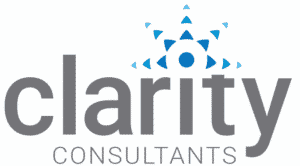[feat-img-left]
Social (
adj.): Pertaining to, devoted to, or characterized by friendly companionship or relations; seeking or enjoying the companionship of others.
Social learning, says Marcia Conner, one of the authors of The New Social Learning (with Tony Bingham, ATD Press, 2010), is almost redundant. “I dare you to find a single example of learning that is not social,” she says.
Conner has worked with the world’s largest corporations to create sustainable cultures, which are collaborative and empowering rather than constraining with rules and policies.
She has held senior positions at Microsoft and PeopleSoft and now counsels companies in the insurance, consumer brands, and business-to-business industries.
How did you become interested in social learning?
Conner: For many years, I had found that creating online social networks or communities of practice were very useful in helping organizations move forward with their tactical needs. This was long before the “social media” world really came into being, as much as 10 years ago.
I’ve always been interested in trying social media tools, although I’m personally not a very early adopter. I’m less a lover of technology than a lover of finding ways to do work better and tools that are easier to use.
I began using Twitter one day in desperation, as I tried to reach someone in an emergency. I initially viewed it as a waste of time, but vowed to try it for a week. In that week, I learned more from the people I chose to follow than those I usually surrounded myself with—and I had fun in the process.
What was the biggest surprise for you in researching this book?
Conner: To be honest, I was surprised at how deeply entrenched learning organizations worldwide are in the old ways of thinking. Many of those that had a bit of understanding just added “social networks” to their list of things; they didn’t view it as an opportunity for basic, fundamental change that can help people learn better.
What are the common objections to adopting social learning?
Conner: The most common is, “People will say the wrong things.” That may be true—but it’s not the end of the world. The great thing about social learning is that the community works to surface and correct inaccurate information. Would you rather not know that people believe the wrong things? Tools like wikis offer companies a rare opportunity to uncover inaccurate information and correct it—but not as the “Information Police.” Rather, peers correct it in the discourse of learning together, and even the correcting is a learning moment. It is kind and authentic.
This objection also speaks volumes about the company’s lack of trust in its employees—a deeper cultural issue that needs to be examined. Organizations often hire the “best and the brightest,” then treat them like idiots once they’re onboard. Social learning provides an opportunity to surface so much of people’s experience and informal knowledge.
What is another common objection?
Conner: “Our people will never participate. They don’t even greet one another on the elevator.” I say, they already are! Employees are not like cats lurking underneath the stairs. Basic demographic research shows that four out of five workers in the United States have Facebook accounts. They have the devices in their pockets and purses.
But perhaps your corporate culture discourages people from speaking up. Culture and technology can be in conflict. Once you encourage people to have conversations, you can manage them and benefit from them.
What is the main idea you hope readers take away from this book?
Conner: People have been learning with and from each other all of their lives. Companies have the opportunity to introduce technology that blows out the old model in huge ways. Social media has always been about learning; what’s new is how to use it for training.
It’s impossible to buy social learning, but you can buy technology that encourages people to learn from each other more quickly and broadly than ever before. It can also capture what is being learned for future generations.
Is our instructional design model relevant to social learning?
Conner: The instructional design process still has a place, but it needs to be broadened to account for who is learning and where they are learning, and it must generate learners’ authentic voices. The technology allows us to design instruction with far more active mindfulness about additional resources, such as articles, communities of practice, and wikis. It also provides an opportunity for continuous improvement, and everyone is a participant in the process.
How is the role of corporate training professionals changing?
Conner: I often talk about the role of educators as curators. They are responsible for introducing new ideas in fresh ways. They invite people in and welcome their reactions and ideas for improvement.
